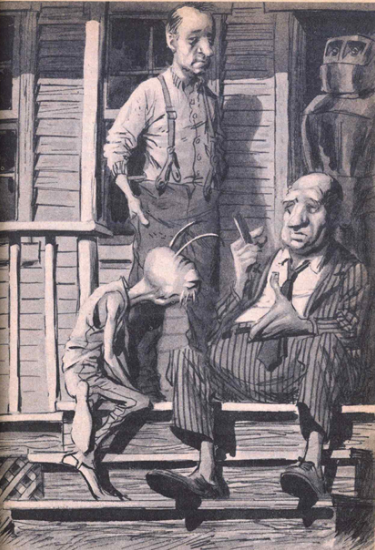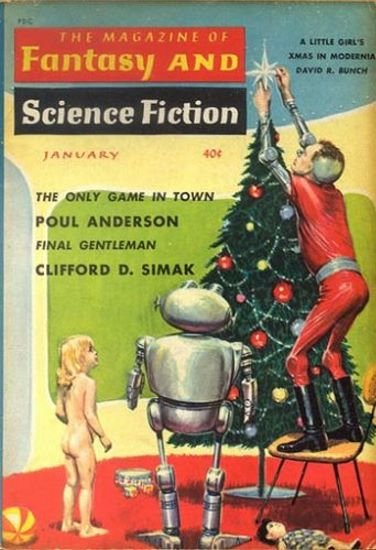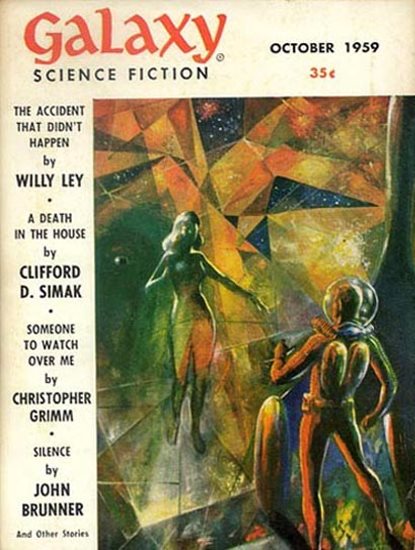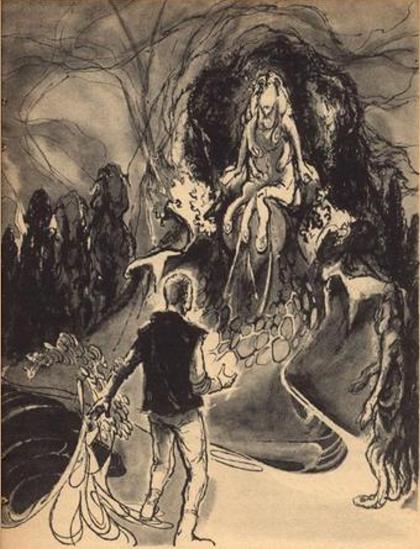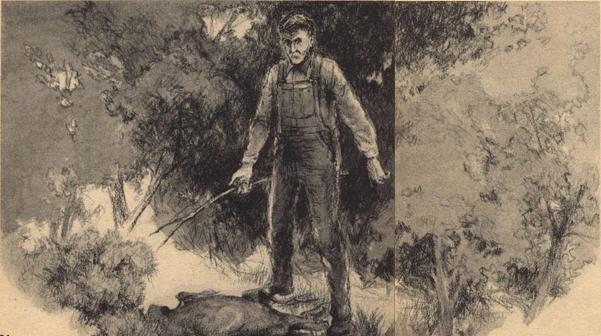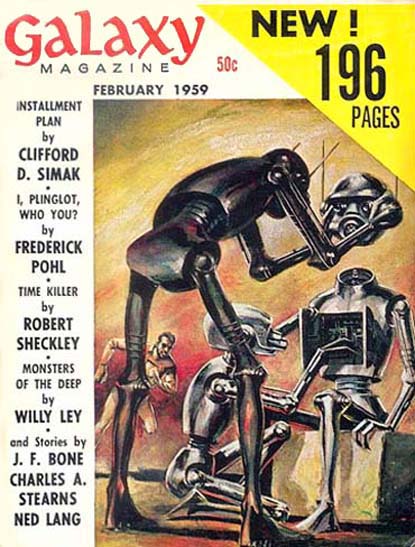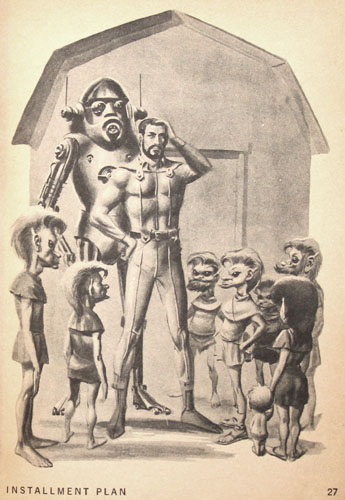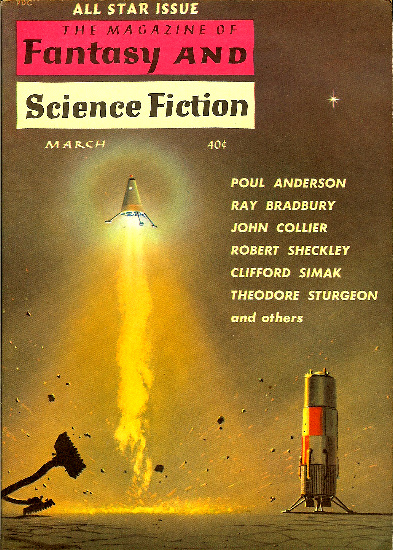
From the depths of mediocrity to the peaks of quality, it looks like our long literary winter may finally be over. Perhaps the groundhog didn't see a shadow this year.
First, we had an uncharacteristically solid Astounding. This month's Fantasy and Science Fiction is similarly exceptional without a clunker in the bunch, and some standouts besides.
I used to see Poul Anderson's name and cringe. The author who had impressed me so much with 1953's Brainwave turned out consistent dreck for the next several years, though to be fair, he generally did so within the pages of Campbell's magazine, not Boucher's. A couple of years ago he got back into his groove, and his stuff has been generally quite good again.
He has the lead novella in the March F&SF, The Martyr, set in a far future in which humanity has met a race of clearly superior psionicists. We are so jealous of these powers, and the possessors so unwilling to give up their secrets, that a small human contingent takes several aliens prisoner to coerce the secrets of psi out of them. But what if it's a secret better left unrevealed?
It's a beautiful story, but there is nastiness here, and it can be a rough read in places. It is no less recommended for that, however. Just giving fair warning.
Ray Bradbury is an author I've never held in much regard, but his Death and the Maiden, about a withered rural crone who shuts herself in an ancient house in defense against mortality, isn't bad.
It doesn't even suffer too badly when compared to Ted Sturgeon's subsequent Like Young, perhaps because the subject matter is so different (Ray was less successful when both he and Ted wrote mermaid stories in quick succession, Ted's being, by far, the superior.) In Sturgeon's tale, the last surviving 504 humans, rendered sterile by radiation, decide to give their race a kind of immortality by planting cultural and scientific relics so as to bootstrap humanity's evolutionary successor. The joke is on us in the end, however.
John Collier's Man Overboard is an atmospheric piece about a dilettante sea captain pursuing an elusive sea-going Loch Ness Monster. It feels old, like something written decades ago. I suspect that is a deliberate stylistic choice, and it's effective.
Then we have a cute little Sheckley: The Girls and Nugent Miller, another story set in a post-atomic, irradiated world. Is a pacifist professor any match against a straw man's Feminist and her charge of beautiful co-eds? The story should offend me, but I recognize a tongue permanently affixed to the inside of the cheek when I see one.
Miriam Allen DeFord has a quite creepy monster story aptly called, The Monster, with an almost Lovecraftian subject (the horror in the cemetery that feeds on children) but done with a more subdued style and with quite the kicker of an ending.
The Good Doctor (Isaac Asimov) is back to form with his non-fiction article on the measuring of interstellar distances, The Flickering Yardstick. I must confess with some chagrin that, despite my astronomical education, I was always a bit vague on how we learned to use Cepheid variable stars to compute galactic distances (their pulsation frequency is linked to their brightness, which allows us to determine how far away they are). Asimov explains it all quite succinctly, and I was gratified to see a woman astronomer was at the center of the story (a Henrietta Leavitt).
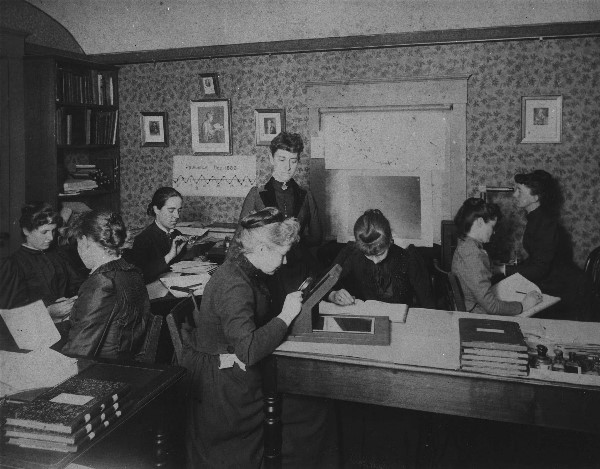
"Pickering's harem," the computers of astronomer Edward Pickering (Leavitt is standing)
Avram Davidson has a fun one-pager called Apres Nous wherein a dove is sent to the future only to return wet and exhausted with an olive leaf in its mouth. I didn't get the punchline until I looked up the quote in a book of quotations.
The remainder of the issue is filled with a most excellent Clifford Simak novella, All the Traps of Earth, in which a centuries-old robot, no longer having a human family to serve, escapes inevitable memory-wiping and repurposing by fleeing to the stars. We've seen the "robot as slave" allegory before in Galaxy's Installment Plan. In fact, it was Cliff, himself, who wrote it, and I remember being uncomfortable with his handling of the metaphor in that story.
I had no such problems this time—it's really a beautiful story of emancipation and self-realization, by the end of which, the indentured servant has become a benevolent elder. A fine way to end a great issue.
So pick up a copy if you can. At 40 cents (the second-cheapest of the Big Four), it's a bargain.
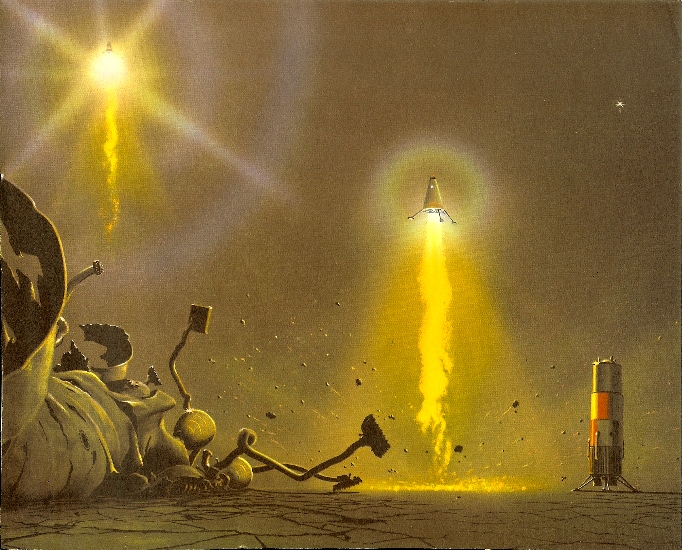
"Spacecraft landing on the Moon" – cover artwork without overprinting – Mel Hunter
—
Galactic Journey is now a proud member of a constellation of interesting columns. While you're waiting for me to publish my next article, why not give one of them a read!
(Confused? Click here for an explanation as to what's really going on)
This entry was originally posted at Dreamwidth, where it has comments. Please comment here or there.



